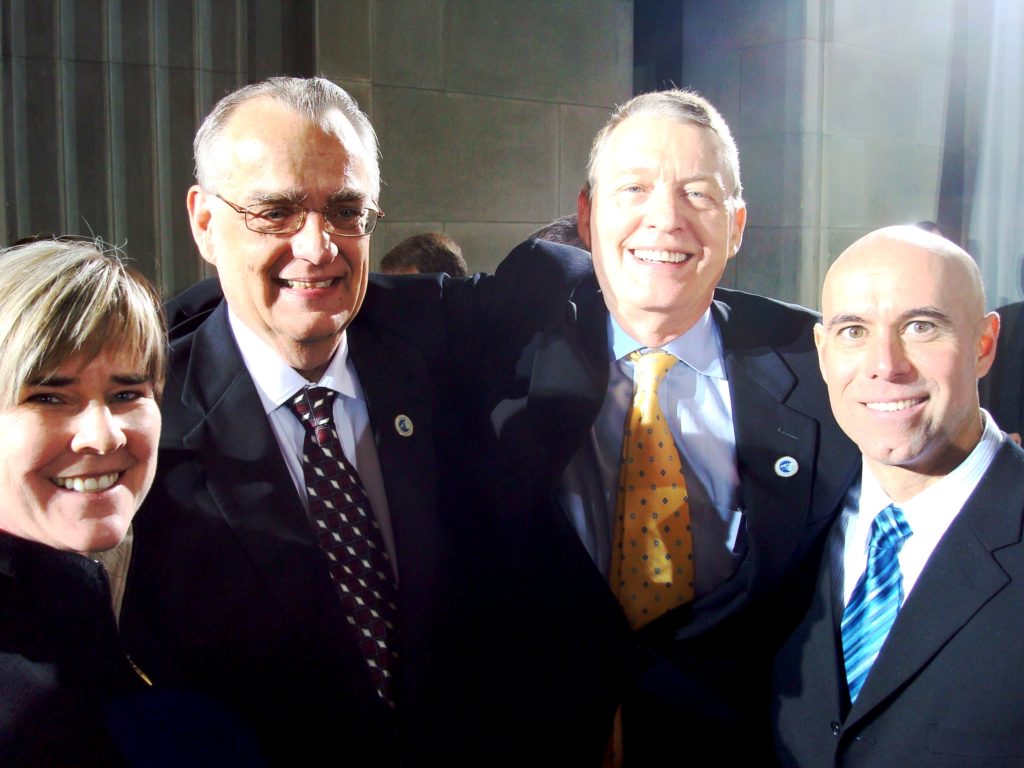We just got a call from Dave Guy-Gainer, aka “Chief,” who’s really become the face of the push to repeal “don’t ask, don’t tell” in North Texas over the last few years.
Guy-Gainer, a gay retired Air Force chief master sergeant who serves on the board of Servicemembers Legal Defense Network, was one of about 500 people who attended this morning’s signing ceremony for the bill to repeal DADT.
Guy-Gainer said he would have driven to D.C. for the ceremony if he had to, and he was the 12th person in line this morning outside the Department of the Interior.
“Chiefs don’t cry, but the allergens were very high in that room,” Guy-Gainer said. “You couldn’t help but shed a tear in there. It was just such an overwhelming feeling of weight being lifted and equality finally happening.”
Guy-Gainer said it was great to see “40 years of gay activists” assembled together, many of whom he’s met over the last decade at functions around the country — alongside lawmakers who’ve worked so hard to end the policy.
“For the first time in a long time I really said the Pledge of Allegiance with feeling,” Guy-Gainer said. “I gave a thumbs up to Sen. Lieberman and he gave me a victory sign back. … Looking at the kids around me. Dan Choi and I were talking for a while. …
“Another one was the standing ovation that [Rep.] Patrick Murphy got,” Guy-Gainer said, recounting some of his memorable moments from the ceremony. “I think he got more applause than the president. He was the real hero in this. … He fell on his political sword for us.”
A year ago when we interviewed Gainer, he said if repeal didn’t happen in 2010, he’d “implode.” So what will he do now that it has finally happened?
“We still have transition to do. We still have to get the certification. We’ll still probably have some legal battles in the courts,” Guy-Gainer said. “There’s still more work to be done.”















Even though we hung up our uniforms, we are still serving this country.
Next up for my LGBT Brothers and Sisters: Enact ENDA, End DOMA, and bring Prop 8 to the Supreme Court.
MM2 (NUKE/SW) US Navy 2002-08
I just have to brag….that’s my dad!!!!
you should be very proud of him brie! 🙂
That’s AIR FORCE Major Margaret Witt,! It was a great day for those in Blue !